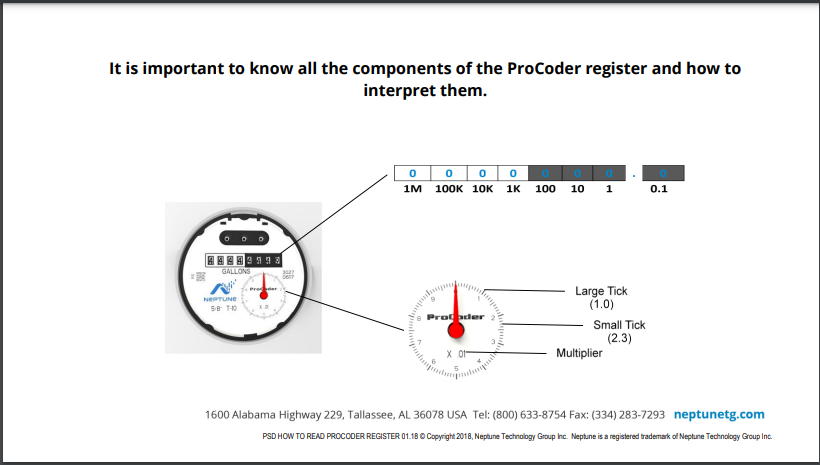STEP 1 Locate your meter box, generally found towards the front of a property, near the street. The box is typically in a direct line with the main outside faucet. It is housed in a plastic box with a blue or black lid. Remove the lid by using a tool such as a large screwdriver. Insert the tool into one of the holes and pry the lid off. Some meters will have a round electronic piece attached to the lid of the meter. Please be careful when opening so that the wires are not pulled out.
STEP 2 Once you open the meter box lid, lift the protective cap on the meter. On the face of the meter, there is a large dial and a display of numbers. For the residential meter, each rotation of the dial measures 10 gallons. Read the number display from left to right. Be sure to include the stationary zero. This is your meter reading. Meters measure water in gallons or cubic feet. Charges for the amount of water consumed are rounded to the nearest thousand gallons or hundred cubic feet used during a billing period. Compare that reading to what your bill states as your current or present reading.
STEP 3 Keep in mind that you might be checking your meter on a date different from the one used for billing. This could result in a difference in the amount you find, compared with the amount on which your bill is based. However, if your reading is considerably higher than what is on your bill, check for a leak or try to determine the source of large water use. If your reading is significantly lower than the reading on your bill, please contact us and let us assist you in determining the problem.
The image below is from Neptune Technology Group and may be accessed at
https://www.neptunetg.com/globalassets/products/literature/psd-how-to-read-procoder-register-02.18.pdf.


 Meter Reading
Meter Reading